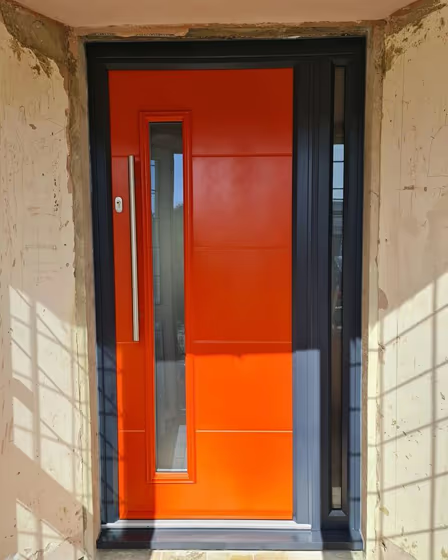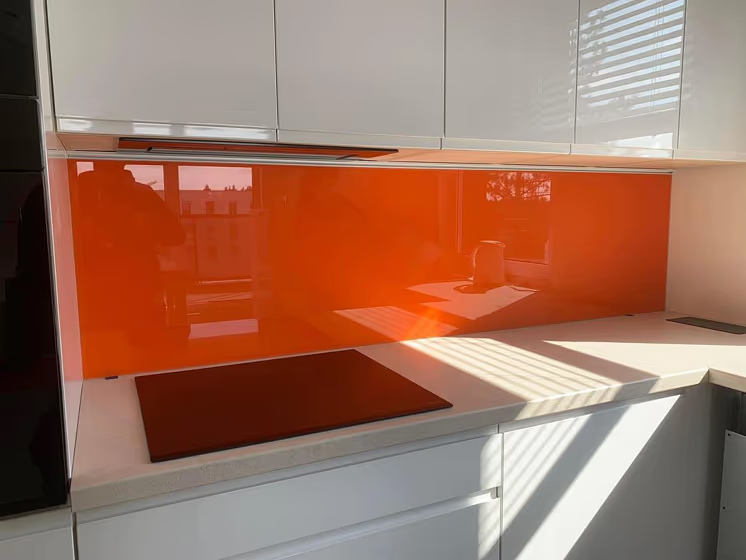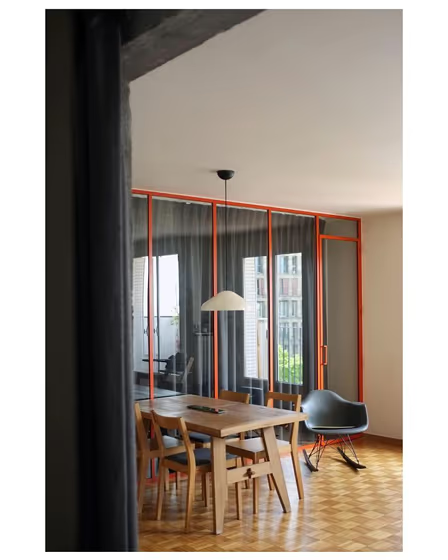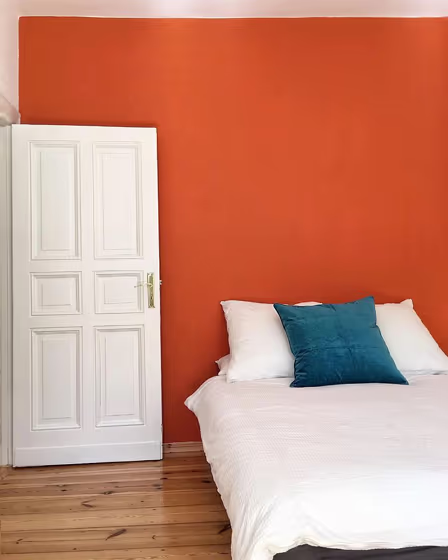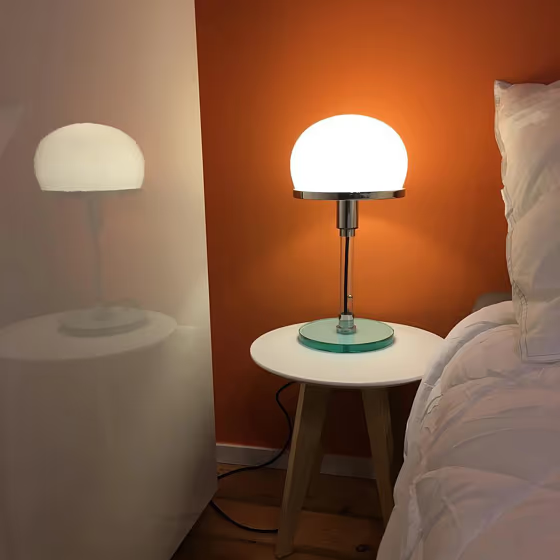RAL Classic Red orange RAL 2001
Contentsshow +hide -
| Code: | RAL 2001 |
| Name: | Red orange |
| Brand: | RAL Classic |
What color is RAL Classic Red orange?
Let's dive into a full Red orange paint color review. Take a look at pictures of real interiors and exteriors painted with beautiful RAL 2001. Find out if this gorgeous warm red paint color would look great on your living room walls or trims, kitchen cabinet, bedroom accent wall, bathroom or house exterior.
LRV of Red orange
Red orange has an LRV of 17.78% and refers to Medium Dark which means that this color reflects very little light. Why LRV is important?

Light Reflectance Value measures the amount of visible and usable light that reflects from a painted surface.
Simply put, the higher the LRV of a paint color, the brighter the room you will get.
The scale goes from 0% (absolute black, absorbing all light) to 100% (pure white, reflecting all light).
Act like a pro: When choosing paint with an LRV of 17.78%, pay attention to your bulbs' brightness. Light brightness is measured in lumens. The lower the paint's LRV, the higher lumen level you need. Every square foot of room needs at least 40 lumens. That means for a 200 ft2 living room you'll need about 8000 lumens of light – e.g., eight 1000 lm bulbs.
Color codes
We have collected almost every possible color code you could ever need.
| Format | Code |
|---|---|
| HEX | #BA481C |
| RGB Decimal | 186, 72, 28 |
| RGB Percent | 72.94%, 28.24%, 10.98% |
| HSV | Hue: 17° Saturation: 84.95% Value: 72.94% |
| HSL | hsl(17, 74, 42) |
| CMYK | Cyan: 0.0 Magenta: 61.29 Yellow: 84.95 Key: 27.06 |
| YIQ | Y: 101.07 I: 82.072 Q: 10.422 |
| XYZ | X: 22.779 Y: 15.161 Z: 2.825 |
| CIE Lab | L:45.854 a:43.966 b:47.435 |
| CIE Luv | L:45.854 u:92.045 v:35.269 |
| Decimal | 12208156 |
| Hunter Lab | 38.937, 36.287, 22.954 |



